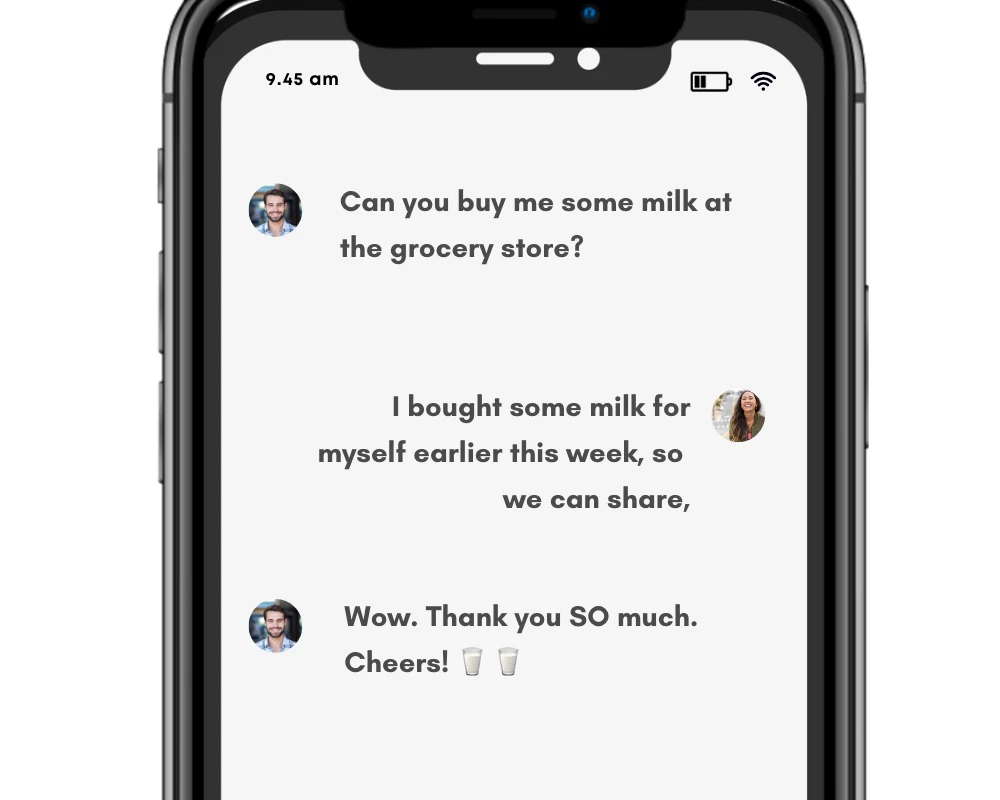
What’s the past tense of “buy”?
What’s the past tense of buy? The word and verb buy (sounds like by or bye, and are homophones) describes the action of getting something by paying for it . . . with money. Anyway, let’s begin with some elementary facts on the irregular verb buy:
He bought a souvenir from his trip.
We have bought all the necessary equipment.
I brought a new camera online.
She bought her dog to the park.
- Buy is an irregular verb; i.e., neither of its past verb forms end in “ed”.
- Both the past tense and past participle forms of buy are bought.
- Brought is the past tense and past participle of the verb bring—not buy.
Verb forms of “buy”
| present | past | future | |
|---|---|---|---|
| simple | I buy | I bought | I will buy |
| continuous | I am buying | I was buying | I will be buying |
| perfect | I have bought | I had bought | I will have bought |
| perfect continuous | I have been buying | I had been buying | I will have been buying |
| present | past | past participle | |
| teach | taught | taught | |
| buy | bought | bought | |
| bring | brought | brought | |
| catch | caught | caught | |
| seek | sought | sought |
Bought as a past participle vs. past tense
Past tense: I bought it from a friend for £10.
Past participle: I have bought the cookies.
If bought is used in the same sentence as have/had (auxiliary verbs), then it is as a past participle. The same for the present participle with forms of ‘be’/’am’.
“Buy”, used in sentences
1. During the event on Feb. 10 and 11, those who buy a box can walk to participating businesses which will provide the chocolate.—Cathy Kozlowicz, Journal Sentinel, 11 Jan. 2023
2. He said it was a mistake, but I don’t buy it.
3. These are the best ski helmets available to buy right now. Aaron H. Bible, Popular Mechanics, 10 Jan. 2023
4. Stock prices are low, so now is a good time to buy.
5. And its slip-on loafer is perhaps the easiest one to buy on Amazon. Christian Gollayan, Men’s Health, 10 Jan. 2023
“buy” past tense is “bought,” visualize buying something with money, not bringing it.
“Bought”, used in sentences
1. He bought me a new coat.
2. He bought the quilt from a local artist.
3. She bought it off eBay for $50.
4. I bought this hat for $10.
5. I bought my car second-hand.
Practice questions: tenses of “buy”
| Questions | Answer options: |
|---|---|
| 1. True or false:“Buy” is a regular verb. | a. trueb. false |
| 2. True or false:Regular verbs end in “ed” to show the past. | a. trueb. false |
| 3. True or false:“Buy” looks the same in the present and past tense. | a. trueb. false |
| 4. Choose the tense sentence is in:I bought that exact same shirt! | a. pastb. present perfectc. past perfect |
| 5. The sentence is in which tense:I will buy dinner on my way over. | a. presentb. pastc. future |
| 6. Choose the form of ‘buy’ to complete the sentence:I ____ cookies! | a. boughtb. buyingc. buys |
Synonyms of buy
- purchase
- acquire
- deal
- pay
- invest
Origin of the word buy
From etymology online on buy (v.):
Middle English bien, from Old English bycgan “get by paying for, acquire the possession of in exchange for something of like value; redeem, ransom; procure; get done,” from Proto-Germanic *bugjan.
Other commonly confused verb tenses
- What’s the past tense of spread?
- What’s the past tense of lead?
- What’s the past tense of choose?
- What’s the past tense of fly?
- What’s the past tense of lay?
- What’s the past tense of drive?
- What’s the past tense of draw?
Work Sheet
What is the simple past tense form of the verb “buy”?
According to the blog post, is “buy” considered a regular or irregular verb?
Both the simple past tense and the past participle forms of “buy” are the same word. What is it?
The word “brought” is the past tense and past participle form of which verb?
Which word is correctly used for the action of getting something by paying for it in the past tense?
She __________ a new dress from the store yesterday.
He __________ his own lunch to work today.
We have __________ all the tickets we need for the concert.
My brother __________ his new video game console with him when he visited.
I __________ this vintage chair from an antique shop.
Frequently Asked Questions
What’s the past tense of buy?
+
What’s difference: “bought” & “brought”?
+
Is “buy” a regular verb?
+
When is “bought” past participle?
+
How to avoid “bought”/”brought” mix-up?
+
Yash, D. "What’s the Past Tense of Buy? Brought or Bought?." Grammarflex, Jun 15, 2025, https://www.grammarflex.com/is-it-brought-or-bought-whats-the-past-tense-of-buy/.
Sources
-
Harper, Douglas. “Etymology of buy.” Online Etymology Dictionary, https://www.etymonline.com/word/buy. Accessed 14 January, 2023.











